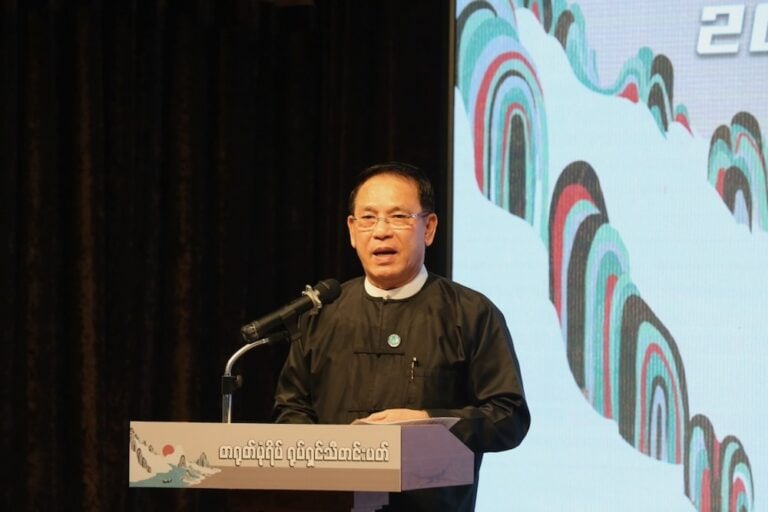(RSF/IFEX) – On 5 August 1994, San San Nweh, journalist, writer and political activist, was arrested in Rangoon (Burma) by the military security police (MIS). She is currently serving a ten-year prison sentence for “spreading information harmful to the state” with the aim of “causing trouble”. Since her arrest, she has been cooped up in […]
(RSF/IFEX) – On 5 August 1994, San San Nweh, journalist, writer and political activist, was arrested in Rangoon (Burma) by the military security police (MIS). She is currently serving a ten-year prison sentence for “spreading information harmful to the state” with the aim of “causing trouble”. Since her arrest, she has been cooped up in a ten square metre cell in the women’s wing of Insein prison in Rangoon. San San Nweh is subjected to interrogations by the MIS and to collective harassment. Prison wardens have repeatedly refused to provide the medical care she requires.
According to the latest information supplied by her family, San San Nweh is very weak and is suffering from several diseases: high blood pressure which could cause a heart attack at any stage; arthritic rheumatism which already caused an onset of paralysis in 1998; kidney infection; and thrombocytopenia (an abnormal decrease in the number of platelets in the blood) that causes repeated haemorrhaging. Prison authorities recently allowed here to go to the prison infirmary alone during the day. This “privilege” enables her to rest on a bed and to have access to certain basic medicines. But the critical treatment she requires is still refused and she has to sleep in her unsanitary cell at night.
San San Nweh shares her cell with three other persons from the National League for Democracy (LND, an opposition party led by Aung San Suu Kyi, Nobel Peace Prize winner in 1991), Daw San San, elected representative of the LND in 1990, Daw Bo Ma and Daw May Win Myint. The roof of the cell is very low and there is only a tiny window, so that air cannot circulate normally. Prisoners sleep on bamboo mats on the ground. The toilet – a mud bowl in the corner of the room – is only cleared once a day. From 6 a.m., the women are forced to sit cross-legged on the ground with their heads bowed. Speaking is forbidden and disobedience is sanctioned. San San Nweh does, however, have the “privilege” of being allowed to read religious books. Once a day, for fifteen minutes, prisoners are taken to the “shower” where they are allowed to talk.
In March 2000, San San Nweh’s daughter, Ma Myat Mo Mo Tun, was released after serving a five-year jail sentence. They had been detained together for a long time. San San Nweh is still very concerned about her six children, deprived of resources since the death of their father and imprisonment of their mother. Her family has been making huge sacrifices for the past six years to collect the 180 Francs (approx. US$25) per month needed to take food to her in prison (the average monthly salary in Rangoon is 350 Francs, or US$48, per family).
Since August 1994, San San Nweh has been regularly interrogated by members of the MIS, who are omnipresent in the Insein jail. According to a former prisoner, they sometimes go to her cell, put a cloth sack over her head and take her to the interrogation room. According to her daughter, the authorities regularly propose she sign a document undertaking to give up all LND activities, in exchange for her release. San San Nweh has always refused this blackmail.
To RSF’s knowledge, the journalist has not been tortured, but repeated interrogations tire her enormously. Some prisoners bribe the guards to avoid these sessions of “psychological torture”.
On 5 August 2000, RSF will send the Burmese embassy in France a petition for the release of San San Nweh, signed by over 2,000 people. This petition is still available on www.rsf.fr.
Despite RSF’s numerous interventions, San San Nweh has still not been released and has never received the medical treatment she badly needs. Her life is in danger.


